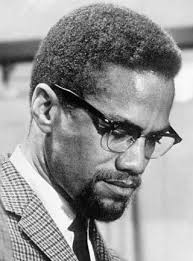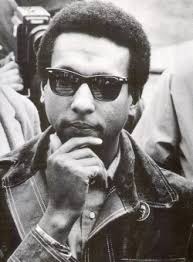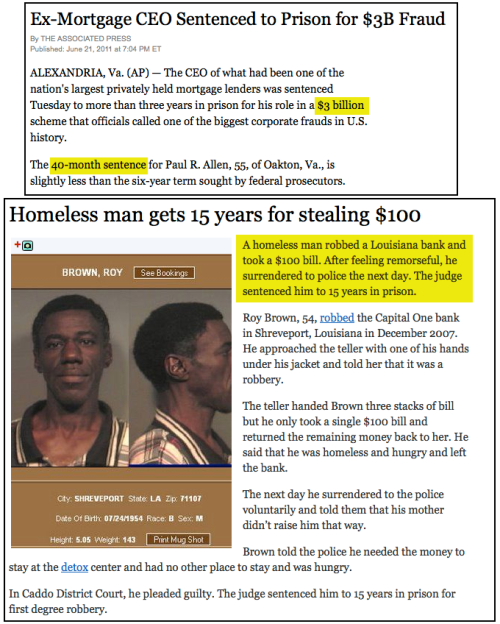Four hundred years. Four hundred years of living in this country, this country which devalues, debases, defiles, degrades and dismisses the beauty, the contributions, the accomplishments of black women. Four hundred years of being told over and over again that we as black women are less than human, that we are not
women.
Four hundred years of myths and outright lies, that black women-haters of many races have spread about us while raping us, while beating us, while forcibly impregnating us, while cutting and tearing us to pieces, while using our bodies, and our love, only to abandon us after they have satisfied their greed of our bodies, our hearts, our minds.
Four hundred years of having our bodies belonging to someone else. During slavery, when any child born of us was the master’s to sell as if it was some little pig or puppy, children that many times were
his own flesh and blood.
Four hundred years of being called, “negresses”, “nigger bitch”, “nigger wench”, “black slut”, “whore”, “wanton”, “lascivious”, “hypersexual”————
———
unrapeable.
Four hundred years of being considered as less woman compared to
all women in the world.
Four hundred years of being the “mules of the world”.
Yes, America has sought the destruction of black women for over 400 years because we would not lie down and allow America to destroy us.
During slavery we would not let the savage viciousness of slavery’s tearing our children from our arms stop us from still loving those children, knowing that the evils of slavery would one day take them from us. During slavery we would still strive to give sustenance and love to children we knew within the next breath could die, due to our not being allowed to nurse them while we worked from sunup to sundown in the cotton fields. Children we had to lay in the fields as we were worked doing hard labor as if we were men. Children we had to steal away to just to give a few moments of mother’s love to them, just a glance, just a look at the child born of our bodies. Children that we carried for 9 months, close to our hearts, feeling their life stirring in us, knowing that they did not belong to us, but instead belonged to some monster who gave not a damn about those children’s humanity; children who were nothing but money, wealth, and financial gain for slavers who sought to annihilate the humanity of an entire race. Even still, we continued to love and cherish those children, holding on to the day when
they and their children’s children would no longer live a nightmare of chattal slavery. Even when those children were sold far from us, we never stopped loving them nor longing to have them return to the arms of our loving embrace, whether in this life
or the next.
But, we survived all that slavery sought to destroy us with.
Four hundred years that included the infamy of Reconstruction when the North allowed the white South to do anything within insanity towards black human beings. Black women saw the rise of the Ku Klux Klan that rode through and terrorized entire black communities using mass gang rapes as a form of terrorism. The atrocities of being raped in front of their husbands, sons, brothers, uncles.
Black women survived that.
One hundred years of the humiliation of Jim Crow segregation, the hatred of Southern whites seeing black women finally begin to leave behind them, the hells of slavery, and to finally have the right to their bodies, their minds, their souls. One hundred years of humiliating segregation which told black women that they were not capable of being raped, whether they were a woman
or a girl. Segregation which denied black women the right to be able to stay at home and raise their children. A racist hateful society that beat black women back into the fields, back into the servitude of wet-nursing white women’s babies, back into the near-slavery of demeaning domestic work, back into a peonage existence that was
worse than slavery. A time when a black woman could count on being called “gal” or “bitch” more than she could count on being called, “lady”, “Ma’am”, “Miss”, or Mrs.”
Black women survived that.
One hundred years of lynching. One hundred years of seeing our sons, our husbands, our brothers, our nephews, our uncles, fall to the rope and the burning stake during the nadir of lynching. One hundred years of seeing our male relatives drug out of our homes, one hundred years of seeing our male relatives roasted, tortured, butchered, and castrated by sadistic psychotic mobs of white lynchers.
One hundred years of pleading and imploring with white women to demand that their men cease their murdering and destroying our men. One hundred years of begging white women to demand that their men cease their raping of defenseless black women and girls, only to have our cries fall on death ears while so many black lives were destroyed through rape and lynching, before white women finally took it upon themselves to finally begin to speak up to put a stop to the years and years of white lynch mobs murdering our male relatives.
Black women survived that.
Four hundred years of having the men who’ve raped and defiled
us, turn around and have those same men blame
us for all the degradations they did to us, as if we the victim deserved to be treated in ways no animal should be treated. Four hundred years of lies that said the
we were the initiators of sexual aggression when it was
those who raped and murdered us, who were guilty of the wanton racist, sexist hatred committed against us.
Black women survived that.
There is so much that black women have survived.
The known,
and the unknown.
How many black women during slavery, Reconstruction and segregation went to their graves, taking with them the knowledge of all the cruelties done to them because there was no one, save their loved ones, who would hear or heed their cries? Who knows how many black women went insane during passage over on the slave ships that crossed the Atlantic during the horrific Middle Passage? How many black women went mad during slavery, Reconstruction and segregation? Who knows how many black women who disappeared in the night, or
in the light of day, on American soil, only to meet their death at the hands of humans who were so brutal and bestial as to consider black women’s lives so cheaply?
We will never know.
What we do know is that black women survived so many trials and travails that it makes one wonder at how they were able to survive so many hells of such a hellish history.
When I look at all that the many black women who have come before me have gone through, the many thousand gone, and I look at all they have survived, all that sought so much to crush and pound them into the earth, so much that sought to take from them their humanity, their personhood,
their womanhood—-my soul looks back in wonder.
I marvel at so much they lived through, I marvel at so much they survived.
Yet do I marvel.
Even now, I still ask:
“How did they survive all that in a world not of their making? How did they suvive so many hells?”
But, they did.
Black women who have done so much, with so little.
Black women like Sojourner Truth. Harriet Tubman. Maria Stewart. Ida Wells-Barnett. Fannie Barrier Williams. Mary Ann Shadd Cary. The Black Washerwomen of 1866 in Jackson, Missisippi. Anna Julia Cooper. Mary Church Terrell. Mary McLeod Bethune. Zora Neale Hurston. Ella Baker. Fannie Lou Hamer. Daisy Bates.The many unknown black women who worked the grassroots level of the Civil Rights Movement. Jeanne Noble. Toni Cade Bambara. Toni Morrison. Darlene Clarke Hine. Angela Davis. Shirley Chisholm. Patricia Hill Collins.
And so too today, do black women still survive and keep on keeping on. Black women who derived a sprititual strength from all the many black people who came before them—black people who endured and triumphed over slavery, Reconstruction and segregation.
The tremendous impacts and contributions black women have made to the arts and sciences. Black women who have always combined their role as wife/mother with the role of provider/fighter in the struggle for all black people’s liberation. The tremendous impact that black women made in the labor movement, religion, science, politics, medicine, education—every place where there was a struggle, there black women were, making their profound and positive impact in ways that only they could make. The fight against racism and sexism that black women fought because they knew that if racism and sexism was allowed to continue, then the black race would be utterly destroyed: men, women and children. The many numerous contributions that black women gave to America helped not just black people, those many endeavors that so many black women lost their lives in to make this a better country, in the end, helped all Americans.
Yet do I marvel.
Today, black women are still looked upon as less than human, as less than woman.
Unlike women of many other races/ethnic groups—Asian-, Arab-, European-, Native-, Latina-American—black women are looked upon as less than these women. They are not accorded the rights to be treated as women. The beauty of black women is considered as less than, as not worthy of adoration and respect. The tightly-coiled hair of black women, the full lips, the womanly derrieres are derided and caricatured by many men from many races—womanly attributes that are just as beautiful and worthy of respect as is the beauty of all other women in the world.
Black women are the last to be considered as worthy of love, respect and protection. They are more likely to be called “bitch” no matter how much respect they have for themselves, no matter how they carry themselves. They are considered as liars not capapable of telling the truth, and of course, they are
still considered as being unrapeble.
When many black women go missing they are not given the same media treatment that “Missing Pretty White Women” are given. When many black women go missing, American society does not call out the U.S. Cavalry, all the military, all the law enforcements across the country to search high and low for them. When black women and girls go missing, many people do not care, and many consider that black woman or girl who is found dead as one less black woman who no longer lives in this world.
With all that black women have survived in this country, America as a whole should be singing the praises of black women. America should be shouting out loud to the rooftops:
“Look at all that black women have gone through and survived. They have gone through the fire, and have come out through the other side stronger than all that has sought their destruction. Black women of America, we love, adore, salute and admire all that you have survived. We stand in
awe at what you have overcome.”
You would think that America would bow in obeisance to black women for all they have been through. You would think that America would laud black women for taking that take which could have destroyed them, and instead, made it something that gave them strength to survive, keep on living, keep on loving, keep on holding on.
But, instead, America keeps up the heat against black women. America keeps up the beat down on black women.
We are the last and least desirable of potential mates or marriage partners. Websites all over America look past, push past, shove aside the beauty of black women to get to non-black women. Anyone, everyone, but a BLACK WOMAN. America in advertising shows it has no neeed for the beauty of black women. America knows that it can dump on and degrade the sanctity of black women’s humanity and womanhood, because our beauty, our humanity, our womanhood has never been accorded protection nor respect.
America should sing to the high heavens, its praise of black women, but, it does not.
Black women may not matter to many Americans, but, they matter to me.
Therefore, I will sing to the praises of black women.
I, sing of the black women who came before me who took the blows of the lash, so that I would not have to suffer the degradation of slavery.
I sing of the black women who suffered in silence and went hungry so that their children could have the last piece of bread.
I sing of the many black clubwomen who looked after the black community, North, South, East and West.
I sing of the many black women who gave their unique stamp on feminism—womanism—feminist thought that looked not only at the present, but, also at the future, feminist thought that was inclusionary of men, women and children. All the many black women of today who still continue to live up to the true ideals of feminism that speaks to the dismantling of a patriarchy that harms and destroys not only women and children, but men as well. When black women thrive and excel, all women thrive and excel. When black women benefit, all women benefit.
No woman is free, until all women are free.
I sing of the many black women, who fought against , in the past, and still fight against, in the present, all the demeaning racist and sexist stereotypes created to thwart, deny, and subjugate the womanhood of all black women.
I sing of the many black women who gave voice to their passions, beliefs and values in their literature, their creative arts, their plays, their books—for if we do not speak for ourselves, there are many who will not.
I sing of the black women who had to bear the brutal pain of forced rape, rapes that did not stop with the abolition of slavery, but, instead continued for another 100 years well up into the 1970s.
I sing of the black women who wore, and still wear, their beauty proudly and fiercely, even when the society around them constantly tells them that their beauty will never amount to anything in anyone’s eyes.
I sing of the many black women who went out to work low-wage paying jobs to keep food in their children’s mouths because a savage society would not allow their husbands gainful employment. I sing of the many black women who worked not because they wanted to, but, because they had to. Because that is what black women have been doing since 1619—working, working……working. Because they lived in a society that refused to allow them the chance to have at least one generation of wives and mothers be able to sit.rest.and —-enjoy some portion of their lives.
I sing of the many black women who went into white homes to work to prevent their daughters from having to experience defilement and degradation of their chastity and honor, chastity and honor that was not recognized in the eyes of America.
And still is not.
I sing praises of all the striving, hoping, praying, fighting, championing, trail-blazing, never-give-up black women who hurdled insumountable odds in a country that we black women were never considered a part of. A country that never had the best interests, joys or hopes of the women of my race at heart. A country that never meant for us to survive.
But, survive we have, and thrive we will!
Black women,
Of Thee I Sing!
 “There is a particular silence
“There is a particular silence  In October 1944, a Henry County grand jury heard Taylor’s case. All seven alleged perpetrators were identified, after one man who was picked up by the sheriff the night of the rape identified them and confessed most of the details. But no evidence was gathered, and the grand jury returned no indictments.
In October 1944, a Henry County grand jury heard Taylor’s case. All seven alleged perpetrators were identified, after one man who was picked up by the sheriff the night of the rape identified them and confessed most of the details. But no evidence was gathered, and the grand jury returned no indictments. “Black women often testified about their assaults—in churches, courtrooms, and in congressional hearings. They wrote letters to their local NAACP chapter, to the Justice Department, and to other organizations. Their stories appeared on the front pages of black newspapers (and sometimes ‘white’ newspapers) throughout the 1940s and 1950s. And nearly every memoir written by a black woman who participated in the long freedom struggle, including the civil rights movement and the Black Power movement, talks about interracial sexual violence (either their own victimization or someone close to them) as being a motivator or catalyst for their entree into civil rights activism. A small sample includes: Harriet Jacobs, Ida B. Wells, Mary Church Terrell, Daisy Bates, Rosa Parks, Melba Patillo Beals, Endesha Ida Mae Holland, Fannie Lou Hamer, Maya Angelou, Alice Walker, Assata Shakur.”
“Black women often testified about their assaults—in churches, courtrooms, and in congressional hearings. They wrote letters to their local NAACP chapter, to the Justice Department, and to other organizations. Their stories appeared on the front pages of black newspapers (and sometimes ‘white’ newspapers) throughout the 1940s and 1950s. And nearly every memoir written by a black woman who participated in the long freedom struggle, including the civil rights movement and the Black Power movement, talks about interracial sexual violence (either their own victimization or someone close to them) as being a motivator or catalyst for their entree into civil rights activism. A small sample includes: Harriet Jacobs, Ida B. Wells, Mary Church Terrell, Daisy Bates, Rosa Parks, Melba Patillo Beals, Endesha Ida Mae Holland, Fannie Lou Hamer, Maya Angelou, Alice Walker, Assata Shakur.”




